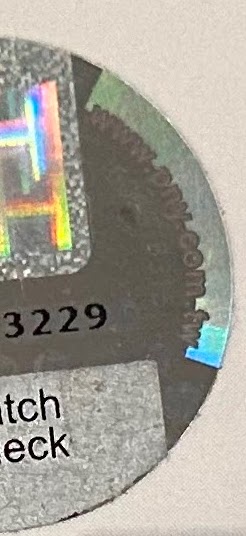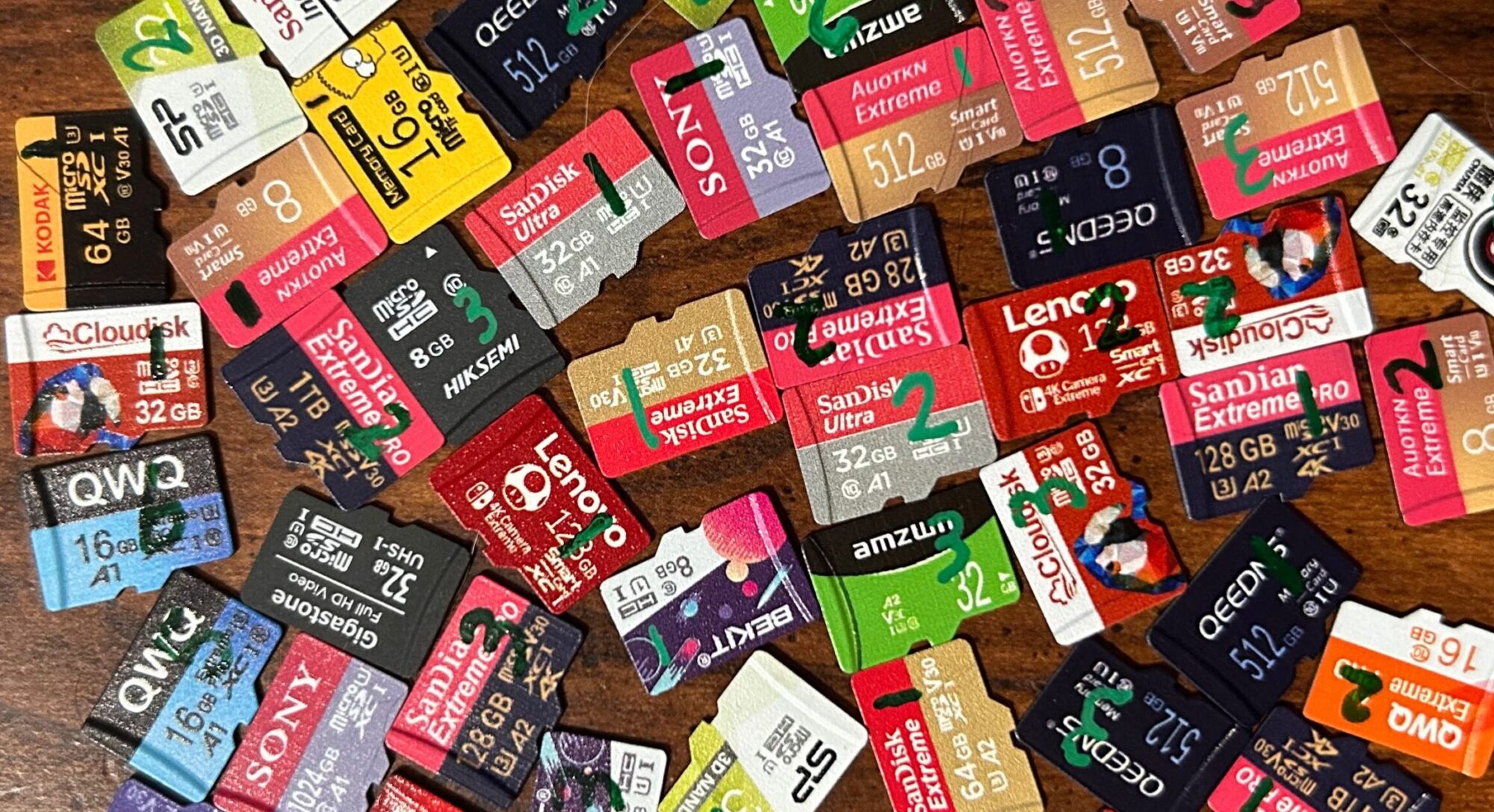This is a card that came up as part of AliExpress’s “Dollar Express” sales. Looking at these cards, I’m not sure how they ended up in the Chinese market — there’s no Mandarin text on the package, and the languages that are on there (plus the presence of an EAN) tells me that these cards were likely intended for retail in Europe. But regardless, they made their way to China — or possibly never left China.
Even before opening the package, it’s pretty obvious that these cards were sourced from PNY. For starters, you can see PNY’s website in the authenticity seal on the front:

Second, there are support emails on the back of the package that are at PNY.com:

And lastly, there are regulatory marks on the back that list PNY as the applicant:

So…I think it’s pretty safe to say that these were made by (or rather, sourced from) PNY under license from HP.
All performance metrics were good — every measurement scored somewhere between the 75th and 94th percentiles (as of the time of this writing), with random write speeds being this card’s strongest suit. These cards carry the U3, V30, and A1 marks, and performance measurements were good enough for it to qualify for all of them. Not a bad deal, considering I paid less than $3 a piece for them.
On the endurance testing front:
- Sample #1’s first error was a single bit flip error, in a single sector, during round 1,113. It has survived 5,427 read/write cycles in total so far.
- Sample #2’s first error was a single bit flip error, in a single sector, during round 640. It has survived 5,433 read/write cycles in total so far.
- Sample #3’s first error was a single bit flip error, in a single sector, during round 545. It has survived 5,758 read/write cycles in total so far.
Overall? In terms of performance, I’ve been impressed by these cards — they did surprisingly well. (A word of caution though: I also tested the 128GB version, and it did markedly worse in most metrics.) So far, endurance tests are going well; however, it’s still too early to make a judgment call there — I’ll just have to wait for more data to come in before I make a decision on these.
June 12, 2025 (current number of read/write cycles is updated automatically every hour)

